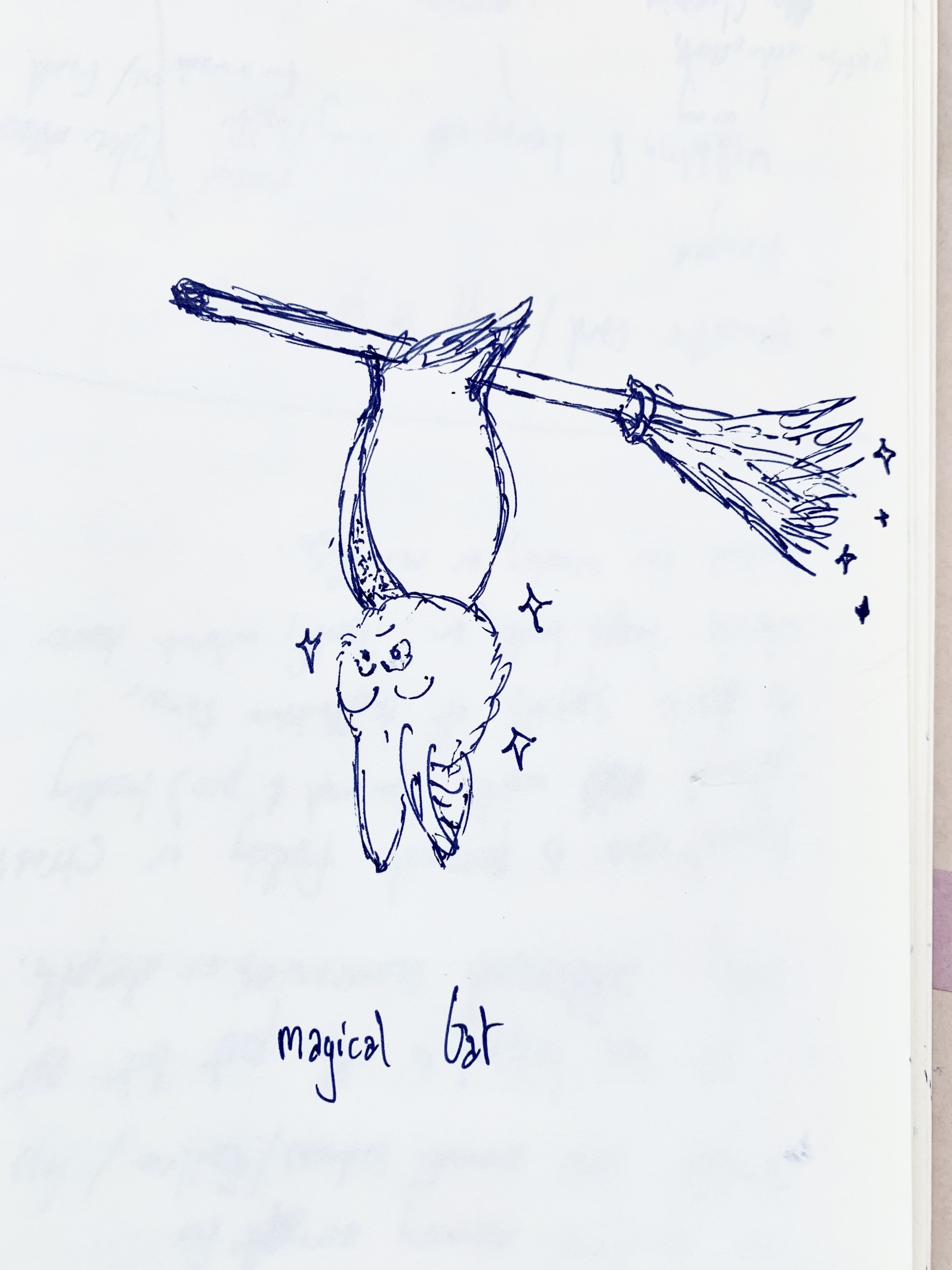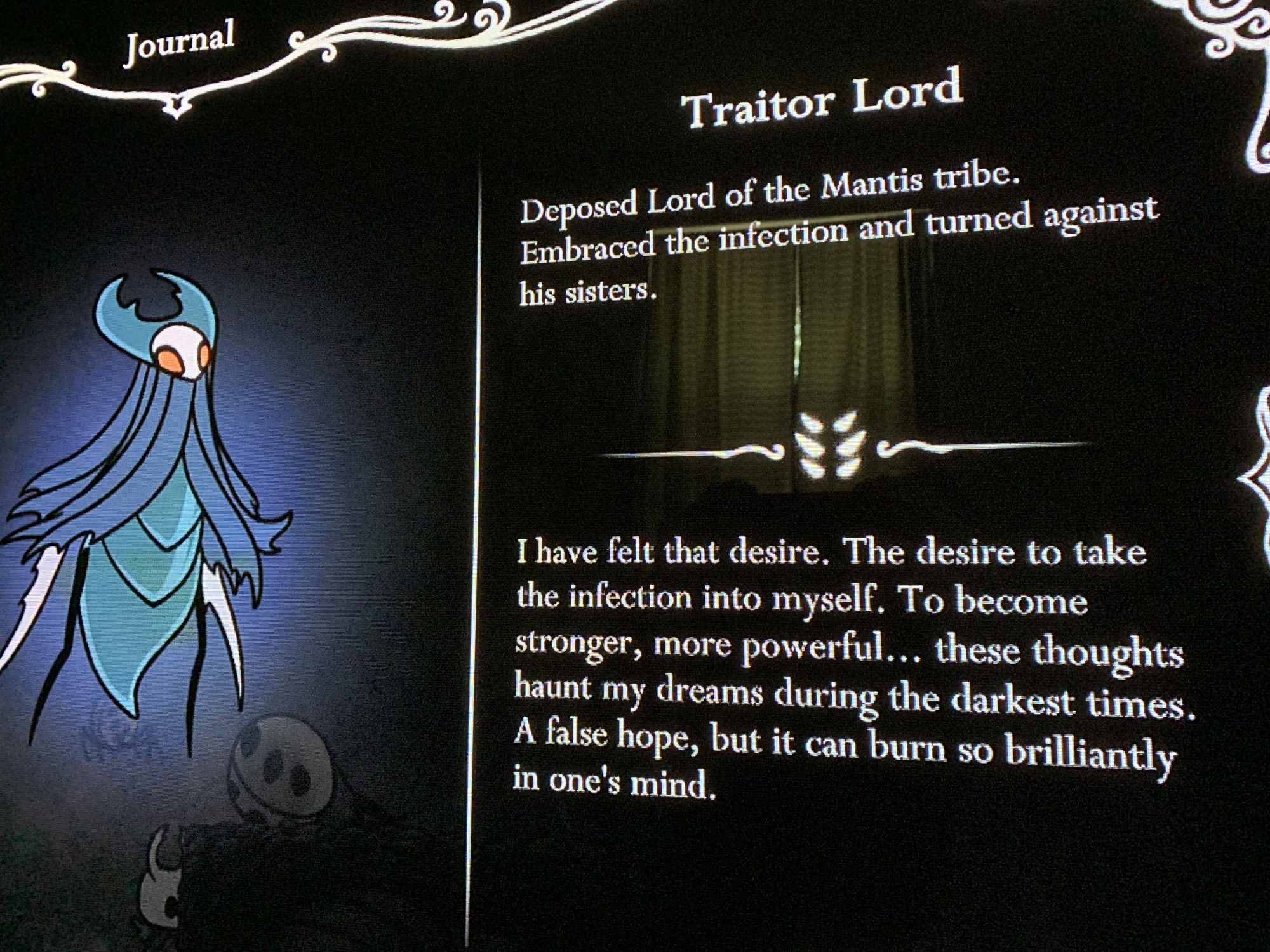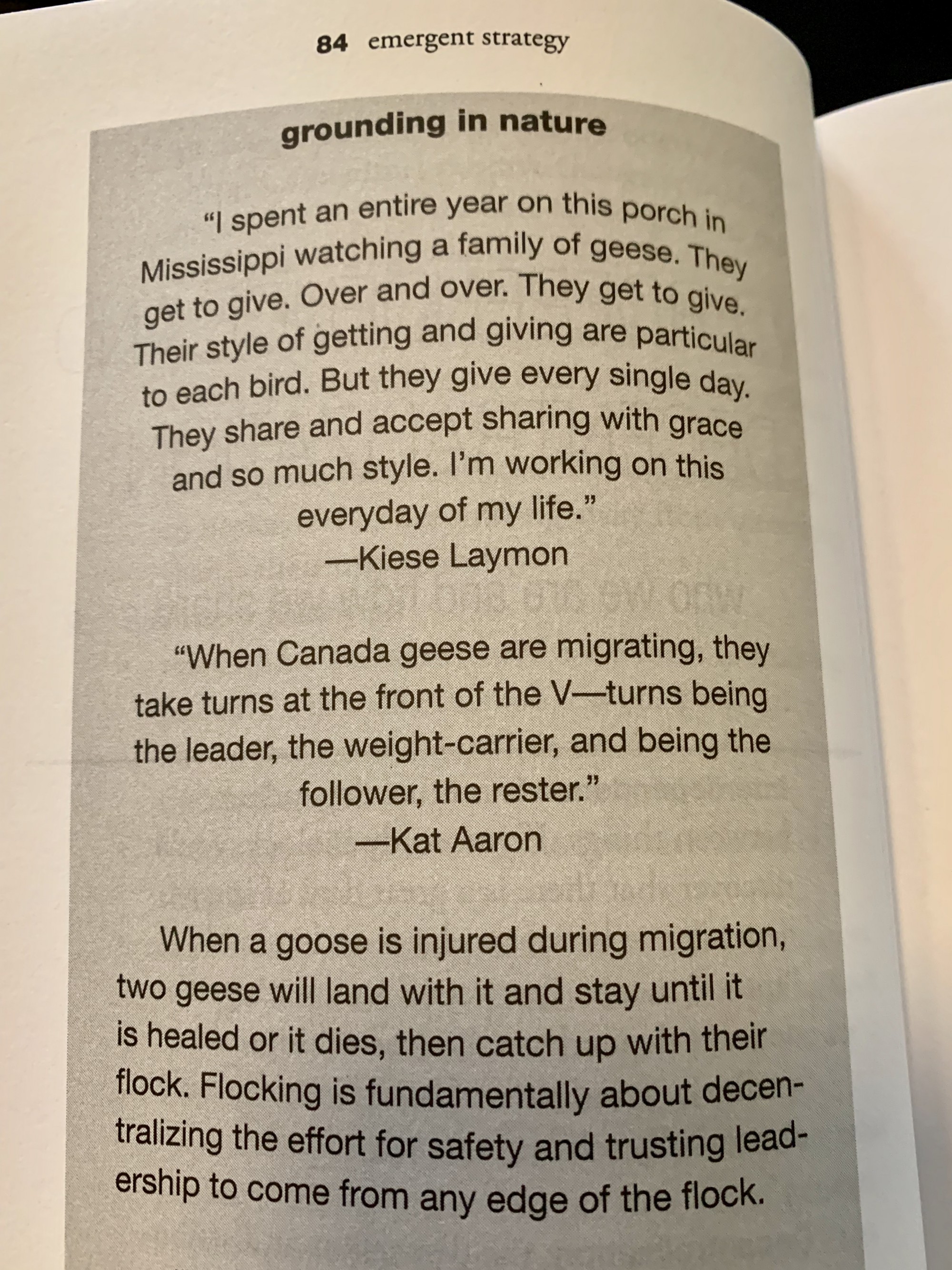I’m not doing inktober because I have enough on my plate already THANKS you very much, but you can look at what I drew a few weeks ago for the prompt “magical bat!”

I’m not doing inktober because I have enough on my plate already THANKS you very much, but you can look at what I drew a few weeks ago for the prompt “magical bat!”


I love Hollow Knight!!!
Every SINGLE time I've listened to this album since ~2013, it feels urgent and fresh. Motion City Soundtrack was a band I didn't listen to for years simply because I didn't like the name; I've worked my whole adult life to diminish that kind of needless judgment. I love singing at maximum volume with Commit This to Memory; one of the records I can't listen to in public because the desire to belt is too great.
Do you still believe in the stories told
To you by my friends and I when you were four years old?
How it got so cold that words just froze
We had to wait 'til summer to find out what was said
One of the best times that we had.I know I say that I'm just fine,
But I hope you wonder from time to time.
I have loved the way this album sounds for 14 years. It came out September 27, 2005, and is one of the few pieces of music I can still enjoy from that year my early life was torn apart by dogs. When I played Shadow of the Colossus in the fall of 2006, this album was on repeat, and feels like the real soundtrack to learning you were the monster while desperately doing the bidding of an untrustworthy authority.
I've never heard another piece of music that captures the vicious, grinning energy and complex, angry hope of this album's atmospheric, singalong rock songs. Their previous album, "Humanistic," was a formative ingredient as I began to write songs for my high school rock band. This album kept me company as those dreams struggled to stay alive over the next few years, and one I can still turn to for strength when I refuse to be defeated.
Good album!
An alternative view of geese as a community rather than individual assholes:

I got to play the first two areas of that Untitled Goose Game and LOVED it. We cracked up, it’s beautiful, a wonderful game. And then this morning my reading reminded me geese aren’t JUST apparent jerks to humans. I’m no goosologist; I just thought it was nice to read this, too.
[I wrote this in 2008, before and after taking a shower in my childhood house, late for a drive back to Milledgeville and already missing a class. It starts out with some personal meandering and a lot of fussy, opaque phonetics, which used to be a lot more interesting to me than they are now. I wrote that part, got stuck, and went to take a shower. While washing my hair, a set of images opened up, and I hastened out of the shower to write the latter half of the poem as quickly as I could. It's not perfect, but I liked it then, I still like a lot of things about it, and it's one of the only pieces of writing I've ever submitted for publication. Along with a short story, it was published in the GCSU journal The Peacock's Feet and won me a little award. My long struggle with depression had already begun, and I found lots of reasons not to submit anything else after that.
The formatting isn't preserved perfectly here, but I'm not gonna obsess over it. I wrote this when I was 21 or 22, freshly-obsessed with Only Revolutions-era Danielewski and Barks' Rumi, and writing pages-long free form poems with deliberate negative space almost daily. Most of them were self-involved exploratory garbage that no one should ever read, but I'm glad I wrote them anyway. Writing a poem for the first time in a while today brought this to mind, partly because I was listening to Canopy Glow then, too, and partly because I can feel some differences in my intent and competence over a decade later that allow me now to tip my birthday sombrero to the desperate, beautiful, obliviously fretful young person I spent a long time being.]
Waking up has been so easy, recentweeks.
So easy,
I do it twenty-seven times
- some nights -
between 10 p.m. (your time)
and 11:59 a.m. (also your time,
because I won't claim it.)
Yes, easy is what I'm about, now;
Among the many ways, let me emphasize
"Taking It"
which I do so frequently, I forgot
that there was such a thing as for-getting.
---
In my more spirited spats,
my name must be changed immediately.
Damn ties and connotations,
it's sound and symbolism I require -
I consider, then, sarcastically, "Nick Symbol,"
"Nick Semblance,"
"Nicholas Oliver Simpleton."
Preserving the first utterance produces
pretty unpleasant new labels.
There's no cultural relevance in my old given name,
and the family tie doesn't need it -
My brother and I make up new joke-names for us both
by inserting "BRO" into other words
at the starts and closes of emails.
"ABROham Lincoln,"
"Yours,
BROlar Ice Caps,"
"Dear House of RepBROsentatives,"
This is our bond!
Not the state-accepted word
that labels thousands of others
just as well
and ineffectuwell
as it does us.
The Sounds
are what have hold on me.
Though I want
to cast off and claim new,
can't ditch
the quest for
re.sim.blance
The infernal inertial
linguistic bit parser
Always present,
scanning sill.a.bulls
and comm.bi.nations
For any foothold,
Or any
Finger-tip accepting crevice (call it boldering)
Or any
Tip-of-the-tongue wiggling in-road
Where a word becomes another,
or two,
where Meaning-As-Accepted
jumps a fence,
rips off its clothes in a sprint
and
splash
splayed
playing
lashes
full-body-first!
(full-body-thirst)
into whoever's uncovered,
uncared-for pool,
or into a stars-only can't-see lake
on Old Lady Whocares's property
And forgets microbes,
slithery deep things,
and for god's sake all propriety,
¡Gets sand in letters it didn't even know it had!
and laughs into the infidel-levity,
just-dark-for-now
Globe Motion
which is Too Far From Everywhere, Wrongstate, U.S.A.,
in the Deep Darkness of the decidu-woods,
which is also the southern tip of India,
baking deliciously in the sun.
--
(Pause for breath.
A story comes,
and though I've got other plans,
I catch and filter it anyway.
One of us might need it.)
--
Three children test their courage
with a dark-thirty backwoods river
breath-holding contest.
Paddling slowly against the current
which becomes the only wave/particle of reference they have.
All three want to play, and it's the honor system
which always - for now - suffices among them.
Together they count,
Eyes wide for any scraps of half-light,
Each of them:
"One!"
"Two!"
"Three!"
- Gasp -
and dunk.
The wind sounds and balmy summ-air
become the chilly clamor you first think is silence
- Eyes open or closed, they can't decide if it matters -
The first boy counts all the way to Two Hundred
before resurfacing.
He calls out for his companions.
... Calls again.
No answer.
He doesn't panic yet.
The second boy has not been counting,
just waiting patiently and feeling his lungs
from the inside.
He hears the muffled voice above the water,
then a second cry and thinks both others
have given in.
Waits another victorious moment...
then Bursts upward!
Breathes deeply!
Wipes the water from his face!
- and sees only one other shadow head.
Another minute or so passes,
and the two surfacers get nervous,
Go from calling to caterwauling.
Can't see a thing,
can't find their friend.
The third boy is stubborn,
testing himself,
already chafing at his environment and upbringing,
refuses to swim up until it's absolutely necessary.
He's under for ten, fifteen minutes, just paddling and thinking,
doesn't feel the strain, doesn't know
how to tell if it's been too long.
Gradually, his mind evaporates,
he fades asleep,
drowns.
Body's carried down the river, never seen again.
The two friends run to find their parents,
Wake them rudely;
a Search is raised;
the only result is that two boys,
in addition to the trauma of Friendloss,
are punished for being young and adventurous.
Eventually they stop wanting to go outside at all,
lose touch.
Drift apart.
Their late companion drifts, too,
Subject to the usual currents,
into the Gulf of Mexico.
Somehow down the coast of Central America,
through the various locks of the Panama Canal.
You'd think they might watch for dead bodies,
- maybe sensors calibrated for cadavers -
but the technicians,
at least on this day,
have other things on their minds.
Cargo containers.
Fútbollegiances.
Nicaraguan blind dates.
And the body of this poor boy,
over how many death-length days,
floats as nature's whim requires,
West across the Pacific Ocean,
past but not into the "dead spot" where
the plastic gathers,
Unseen by any ships or satellites,
Untroubled by deep sea creatures,
Unknown to all but you, the sea, and me.
~~~
A wave breaks open on the southern tip of India,
The sun approaching its highest aspiration.
Something soggy and solid deposits on the sand.
Two young Indian boys leave their covered mother
and run naked to the water.
What they say, I don't know;
I don't speak this dialect of Hindi,
or know the writing to transcribe it.
But they are speaking, shouting quickly,
excitedly, a little nervous.
It's a pale, wrinkly boy,
limp -
and the tide wraps around him again briefly,
face down on the grit.
The two Indian boys look at each other,
Eyes glinting with approaching knowledge,
and together say Rhythmically
three words in their beautiful language.
One (word)
Two (words)
Third (word)
- Gasp -
The universal intake of breath
from all
three
boys.
They flip the pale boy over,
his eyes flicker open
- only briefly surprised -
and now they all draw deeply
from the same balmy, blazing air.
Naked,
Sweaty or sopping,
They can't help it --
All three begin to laugh.
in my experience it's a nice idea to listen to Anathallo's Canopy Glow along the way.
I was reading about translation, remembering that years ago I read Rilke in German and in English translation and got so frustrated with the liberties taken by the translator, the loss of Rilke's simplicity and urgency, at least to my undeveloped German eye. But translation is contentious. I realized it had been long enough that I couldn't remember any of the details of any of Rilke's poems, only vague impressions and my own young arrogance. So what would happen if I said I was going to write a Rilke poem from memory?
There is no sun like ours,
when the sparrows carry it lightly
into place. They leave clean stitches
you can hardly even see by squinting.
Bows mid-air, then whispering away.
I've been to other cities. Strange parks.
Saved details to bring back home to you.
From the hills outside London, "Their sun
sags long range doom, a funeral skirt
reversed to pretend a willing bridesmaid."
On the girders of unbuilt New York,
"A self-inflicted wound held up in triumph,
this sun drips gold-flake blood which
soaks reluctantly into floorboards while,
eyes dead ahead, trees clap only admiration."
On a Greek beach I wrote, "Here the sun
knows better than to leave the water.
It peeks lazy above the horizon all day,
draws a deep breath before dipping under,
and pities the hills their station."
But you and I have it best.
On our cushion of folded grass,
your grandmother furious we've stolen
her For Display Only quilt again. All of it
glowing through fine-wine crystal.
There is no sun like ours.
It gathers between our teeth. Aftertaste
of unearned hope. Courage pulled
close around our shoulders. Held tight
against the sky, no branch, no snag,
no shivering undone night.
(I tweeted this yesterday but wanted to save these thoughts somewhere more permanent. I'd may write at more length as I keep playing.)
So it seems like everybody else already knows it's good, but I started Hollow Knight this weekend and am delighted by its poetry, mood, and action. I thought I didn't want to play another exploratory platform game. I was wrong! I just met an antique collector in a glass-walled, rain-painted, hidden-deep city, and my heart swelled with so much quiet affection I had to step away to savor it.
Earlier this week I played a couple hours of Super Metroid, remembering my first experience with it two decades ago and wondering if it was possible to expand on that energy in new and interesting ways. Hollow Knight has absolutely done it in just a few hours. And a great deal beyond that. I don't mean to diminish it by simply insisting on the comparison to Metroid. It's a pretty remarkable synthesis of many lineages, which welcomes comparison but exceeds reduction. I'm honestly floored by it.